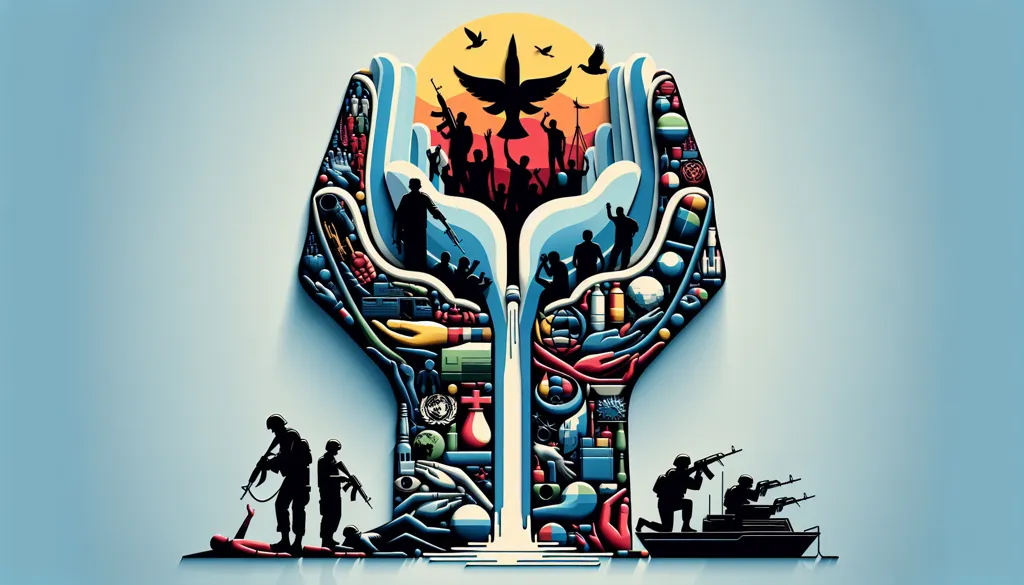The Humanitarian Crisis in Gaza: A Complex Web of Conflict and Aid
The ongoing conflict between Israel and Gaza has led to a humanitarian crisis of unprecedented proportions. As a moderate Midwestern mother, I find it heartbreaking to see families torn apart and children facing such dire circumstances. The situation in Gaza has become a focal point of international concern, with widespread calls for humanitarian intervention amid continuous violence and political strife.
The Humanitarian Effort and Its Challenges
Earlier this year, UN agencies, including the World Food Programme and OCHA, attempted to deliver essential food aid to the starving population of northern Gaza. This effort was met with significant obstacles, not the least of which were targeted Israeli strikes that decimated key aid distribution points and killed over 100 Palestinians involved in the aid effort.
The situation in Gaza is a microcosm of the broader challenges faced in delivering humanitarian aid in conflict zones. The UN's plan to use local Palestinian committees to secure aid deliveries initially showed promise. However, repeated attacks effectively crippled the initiative, highlighting the broader issue of politicizing aid in conflict-ridden areas.
Starvation and Societal Collapse
The blockade and bombardment have left many in northern Gaza starving, with reports of children dying from malnutrition and dehydration. This tragic situation underscores the dire need for a reliable supply of food and medical aid. Families like those of Bilal, a resident of the Jabalia refugee camp, face unimaginable choices daily, often risking their lives to secure food for their children.
The Political Maze of Humanitarian Aid
The UN's attempt to navigate the complex political landscape of Gaza required cooperation from local tribes and families. These groups hold significant social power and were crucial in the initial success of aid deliveries. However, the political implications of such collaborations are fraught with challenges, as both Israel and Hamas have vested interests that complicate neutral humanitarian efforts.
Israel's efforts to replace Hamas-affiliated authorities with local governance structures further complicated the situation. The tribes were wary of appearing to side with Israel, fearing repercussions from Hamas and potential internal conflict.
Allegations of War Crimes
Reports from various human rights organizations and international bodies have accused Israel of committing war crimes by targeting civilians and obstructing humanitarian aid. These allegations are compounded by the International Criminal Court's arrest warrants for Israeli leaders, raising questions about accountability and justice in the conflict.
The targeting of humanitarian efforts, such as the killing of aid workers and attacks on medical facilities, has drawn international condemnation. This has led to increased scrutiny of Israel's military tactics and calls for a ceasefire to allow for the safe delivery of aid.
Media Coverage and Bias
The role of media in shaping public perception of the conflict is significant. Organizations like the BBC have faced internal criticism for their coverage, accused of bias and failing to provide balanced reporting. This highlights the challenges media outlets face in maintaining impartiality while covering such complex and emotive issues.
Critics argue that media outlets often defer to official narratives, which can skew public understanding and hinder efforts to hold all parties accountable for their actions.
Conclusion
The humanitarian crisis in Gaza is a multifaceted issue that requires urgent international attention and action. It is crucial for all parties involved to prioritize humanitarian needs over political agendas. As a mother, I cannot help but empathize with the families struggling to survive in such conditions, and I hope for a future where peace and stability are restored in Gaza and beyond.

